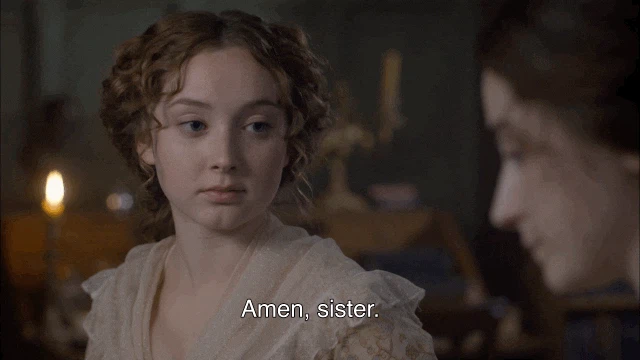The Positive Case For The Patriarchy
We’ve got an existential crisis of masculinity at hand, caused by the misconception that if only women were in charge, things would be so much better. But modern, pessimistic perceptions of masculinity are built on a foundation of lies. It’s time to set the record straight for what is and isn’t “patriarchy.”

Have you done your duty by rolling up your shirtsleeves and putting in the hours lately to smash the patriarchy? Western power structures where men dominate over women are problematic and supposedly not even the “natural order of things,” if you ask any mainstream feminist.
“I think we can safely say that the patriarchy represents a failed social experiment of epic proportions,” wrote author Kerala Taylor in a Medium article about how patriarchy not only hurts women, but apparently it hurts men too. Women (and men!) like Taylor truly believe that we’re all victims of a patriarchal society that oppresses women’s personal liberties, sexual proclivities, educational freedoms, career opportunities, and more.
Entire fields of research are based upon this notion that men systemically tyrannize women, whether they realize it or not, and that women would be happier if we had the freedom to realize our own ambition. According to Vogue, we’re still living in a “patriarchal society,” and a “toxic” one at that. Well, Vogue and other thought leaders imprisoned by feminism’s divisive worldview are wrong – we don’t currently live in a patriarchy, but we’d be much better off if we lived in something that more closely resembled one.
“I Eat Boys Like You for Breakfast”
What even is patriarchy? Curiously, the definition varies depending on who you ask. According to some scholars, it’s a “system of relationships, beliefs, and values embedded in political, social, and economic systems that structure gender inequality between men and women.” In this view, “feminine” attributes or things that pertain to women are “undervalued,” while things that pertain to men are “privileged.” Thus, these structures, whether in the public or private spheres, allegedly ensure male domination.

Others expand on this definition by explaining that you know you’re in a patriarchy when “women are collectively excluded from political, social, and economic positions of power,” are “paid less well for work of equal value,” and have “unequal access to resources, goods, and services.”
That fearsome patriarchy we hear so much about? Some sociologists and misandrists alike won’t mince their words. They acrimoniously allege that men in patriarchal societies “automatically have certain advantages” such as “a general freedom from fear of being raped and sexually assaulted” or freedom from sex-based hiring discrimination. Well, they must have missed the memo that employers in our supposed patriarchy actually favor women in hiring processes.
No, we’re not currently living in this feminist delusion of patriarchy. We’re not even living in a “matriarchy.” Right now, our society functions much closer to a gynecocracy, which I’ve explained before as a culture controlled by women that adversely harms us by fundamentally changing womanhood and intentionally elevating us above men. Women and men in America have been blessed with the same legal equality for several decades now.
In a fiery overcorrection to feminize societal norms, men must now model their behavior on women, instead of embracing the genuinely positive elements of their masculinity. Don’t roughhouse on the playground. Don’t chat up a woman at a coffee shop. Don’t even look at a woman with the dreaded “male gaze” at the gym – heaven forbid – or you get roasted online for wrongful sexualization.
Women aren’t a victim class at this point; we’re closer to being the ruling class.
Women aren’t a victim class at this point; we’re closer to being the ruling class. We’ve overtaken men in the college-educated labor force, we’ve got the upper hand in the dating market, we’re exempt from Selective Service, and we even have more tax-funded organizations specific to our sex. Wives pick verbal and physical fights at higher rates than men, yet men are more likely to be convicted on charges related to domestic violence.
We’ve got gynecologists for our sexual and reproductive health, but have you ever asked yourself what the male equivalent is? Men have sexual and reproductive health needs too, but their needs get addressed by urologists – and anyone can go see a urologist, regardless of their sex.
Abused men have their feelings diminished or ignored. Downtrodden men are more successful in their suicide attempts. Are there male counterparts for the U.S. Food and Drug Administration’s Office of Women’s Health or the U.S. Department of Justice’s Office on Violence Against Women? Didn’t think so.
Don’t get me wrong, there are still plenty of ways that women are disadvantaged. I bring these examples up not to prove that women have it so much better than men, but rather, I’m insisting that the patriarchy doesn’t need smashing because we simply don’t live in one.

But wait, Andrea, aren’t there more men in political power than women? Without a doubt, there are fewer women elected to public office, and more of our laws have been written by men, but men don’t tyrannically rule the country with a monolithic, iron fist. And they shouldn’t either. That wouldn’t give young men a welcoming view of masculinity; it would normalize toxic behaviors that we see in destructively patriarchal nations like Nepal, Yemen, or Saudi Arabia, where women are likened to second-class citizens.
“Let’s Hear It for the Boys”
What if, however, we leaned into our nature and accepted some biological truths instead of fighting so hard to overcorrect them? What if instead of feminizing our “patriarchal” society, we gave men more grace to be their best, masculine selves? Let’s drop the facade and admit that things could honestly be pretty great. Not just for men, but for women too.
Whereas tyrannically patriarchal societies build structure but dismantle a prosperous, vibrant manner of life for women, honest masculine societies ensure the protection and comfort of those “below” in the cultural hierarchy. What does this hypothetically look like? Men being responsible to their women, to their families, and to their communities who depend on them to stand tall as a pillar for society and a paragon of ambition and progress.
Women certainly wouldn’t need to quit their jobs, bake bread barefoot in the kitchen, and birth many, many children – unless they want to, of course. But, it would be nice if more women understood that women aren’t systemically being held back by an artificial wage gap and are instead just choosing career paths that better align with their aptitude and provide more safety and flexibility in the chance that they do want to become mothers.
We wouldn’t witness every institution feminize its values in ways that detract from healthy competition and innovation. Both in conflict resolution and competition, women typically take a more docile, agreeable role. The masculine predisposition to fight back and seek domination makes for better businesses and stronger defense forces.
We don’t have to overlook the “cons” of patriarchy. We just need to admit that the “pros” outweigh them.
Cancel culture and other progressive pathologies that foster safetyism and coddle young minds in, say, grade school and college wouldn’t be detracting from an honest education. I doubt you’d see adults engaging in sappy therapy speak (or psychobabble) like, “I’m in a place where I’m trying to honor my needs and act in alignment with what feels right within the scope of my life, and I’m afraid our friendship doesn’t fit in that framework.”
Women have invented many useful gadgets and don’t get enough recognition, but the celebration of male invention appears to be an afterthought. Many of these inventions changed the world in ways that we by and large take for granted, such as the telephone, electricity, the computer, the internet, the printing press, the internal combustion engine, and far less sexy things like toilet paper or industrial trash compactors.
We would have strong, present fathers who act as role models to those trudging through life’s challenges and a testament to all that there is a reward at the end of the tunnel. As many as 21% of children are raised without their father in America, and in those split family units, children end up more likely to commit crimes, go to prison, deal drugs, have psychological problems, engage in promiscuous behavior, and sadly, repeat the toxic cycle.
“What a Man, What a Mighty Good Man”
Not all of society's ills would be solved with more honest masculinity. I’m not that naive. Skeptics may say that war will ravage as it always has and that perhaps “if women ruled the world” we wouldn’t see such violence. But, even if women aren’t as violent as men, women don’t lack the ability to oppress. And as Jordan Peterson once wrote, “If you think tough men are dangerous, wait until you see what weak men are capable of.”
When men are empowered to be masculine, instead of chastised into effeminacy or provoked into cruelty, they find meaning. They stand up for the people they love and the causes they believe in, and they have the self-control to respect boundaries and emotions. They seek out moments of courage, challenging themselves in their personal and professional life, instead of surrendering to moments of weakness.
Lest it be forgotten, women should selfishly accept a healthy dose of “patriarchy” as it would best serve them to have that yang to their yin. Where a man lacks intuition, he leads in logic. Where a man may be less agreeable, he is instead direct. Where a man may not nurture, he conquers and provides. We’re each other's best allies and create a functioning, thriving world when we play to our strengths instead of fighting against them.
Closing Thoughts
Men are starving for meaning. They spent hundreds upon thousands of years developing chivalrous, hard-working, honorable traits only to be told by the gynecocracy that they are just patriarchal buffoons. Camille Paglia, a second wave feminist, once even admitted that her generation of feminists didn’t know what they really wanted, they just “produced the sexual revolution,” and now the current generation bears the burden of “figuring out how it’s going to work.”
But vocal cries from modern feminists that promote hostility between the sexes and are sadly self-sabotaging in nature have shamed many a young, impressionable woman out of her natural desire for a stable, healthy romantic relationship with an authentically assertive, masculine man. Men aren’t dominating Western society like we’ve been led to think they are, and as a result of this misconception, we’ve sadly ignored challenges unique to men. We don’t have to overlook the “cons” of patriarchy. We just need to admit that the “pros” outweigh them.
Support our cause and help women reclaim their femininity by subscribing today.